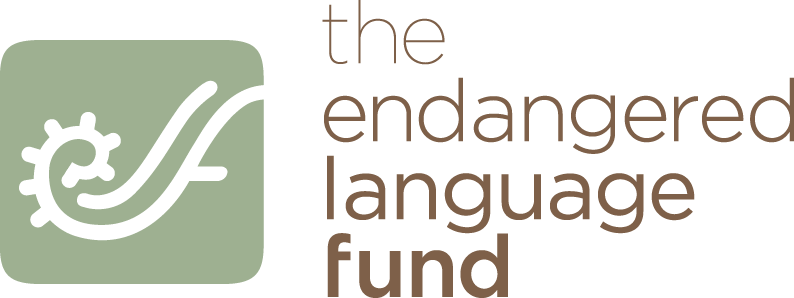Request for Proposals 2024
Language Legacies Grant Program
The Endangered Language Fund provides grants for language documentation and revitalization, and for linguistic fieldwork. The work most likely to be funded is that which serves both the native community and the field of linguistics, although projects which have immediate applicability to one group and more distant applicability to the other will also be considered. Support for publication is a low priority, although it will be considered. Proposals can originate in any country. The language involved must be in danger of disappearing within a generation or two. Endangerment is a continuum, and the location on the continuum is one factor in our funding decisions.
Eligible expenses include consultant fees, equipment, travel, etc. Overhead is not allowed. Grants are for a one-year period, though extensions may be applied for. We expect grants in this round to be less than $4,000, and to average about $2,000.
Eligible expenses include consultant fees, equipment, travel, etc. Overhead is not allowed. Grants are for a one-year period, though extensions may be applied for. We expect grants in this round to be less than $4,000, and to average about $2,000.
The MKARL Fund
Due to a generous contribution from an anonymous donor, combined with matching donations, the Endangered Language Fund is pleased to be able to expand the scope of its invited proposals through the MKARL Fund (in honor of Michael Krauss) to include work on archival initiatives and efforts. In particular, we encourage proposals that focus on the creation of archives, depositing material to archives, accessing archives, and the hosting of and/or attendance at workshops, seminars, or institutes that offer training and support on archiving activities and initiatives.
Funding towards projects on languages of the Pacific Northwest Coast
Due to a generous contribution from Stephen Anderson, awarded projects that focus on the following languages or language groups are eligible for supplemental funding: Wakashan, Coast Salish and Bella Coola, Tlingit, Tsimshian, and Haida.
Funding from the International Phonetic Association
The International Phonetic Association is interested in co-funding awards for projects that include a phonetic component, especially systematic phonetic documentation of the kind leading to Illustrations of the IPA.
Eligibility
Language activists and researchers from any country are eligible to apply. Awards can be made to institutions, but no administrative (overhead, indirect) costs are covered.
Please note that many languages in the northwestern United States of America are NOT eligible for the Language Legacies program. These languages are covered instead by our Native Voices Endowment (NVE) program. Click for the full list of tribes that are covered by NVE and thus ineligible for the Language Legacies program.
Please note that many languages in the northwestern United States of America are NOT eligible for the Language Legacies program. These languages are covered instead by our Native Voices Endowment (NVE) program. Click for the full list of tribes that are covered by NVE and thus ineligible for the Language Legacies program.
Deadline
The deadline for submissions will be March 15, 2024.
How To Apply
Emailed applications are no longer accepted. Please navigate to the Project Application Page to complete and submit an application. Detailed instructions may also be found here.
On the Project Application Page, click on the blue button at the bottom of the page to apply for a Language Legacies Grant.
The Application Page will request information, including the title of the project, an abstract that summarizes the proposed project (maximum 150 words), the ISO 639-3 Code for the language and the amount requested (in US Dollars), and Primary Project Manager information. At the top of the page is button for you to click if you want your project proposal to be considered for MKARL Funding.
In addition, a number of files are required to be uploaded. They must all be in PDF format. They include:
The letter of community support is required. If materials are to be archived at an existing institution, a letter of archival support is required. Additional letters of support from academic advisors for students or others who know the ability of the applicant to perform the work, can be included.
Please note that the process for including letters of support has changed starting this year. Applicants will no longer upload letters of support themselves. Rather, applicants will use the Grants Management System to send a request for a letter of support to the email address/addresses of one or more recommenders. Please see these attached instructions for more information. Letters must be included in the online application portal by the submission deadline of March 15, 2024. If the required letter(s) are not included in the portal when the RFP closes, then the application will be considered incomplete and will not be considered for funding. Please plan this part of your application in advance.
Language Of Proposal
We can accept proposals in English or in Spanish.
Limit to One Proposal
A researcher can be the primary researcher on only one proposal per year.
Acknowledgment of Receipt
Receipt of the application will be acknowledged by email.
If a Grant is Awarded
Before receiving any funds, university-based applicants must show that they have met the requirements of their university's human subjects committee (IRB). Tribal or other applicants must provide equivalent assurance that proper protocols are being used.
If a grant is offered and accepted, one year after the award is made the recipient is required to provide the Endangered Language Fund with a short formal report on the project, including where the language materials are archived and the results of the project are being/have been shared with the language community.
Further inquiries can be made to:
The Endangered Language Fund
elf_at_endangeredlanguagefund_dot_org
300 George Street, Suite 900
New Haven, CT 06511 USA
Emailed applications are no longer accepted. Please navigate to the Project Application Page to complete and submit an application. Detailed instructions may also be found here.
On the Project Application Page, click on the blue button at the bottom of the page to apply for a Language Legacies Grant.
The Application Page will request information, including the title of the project, an abstract that summarizes the proposed project (maximum 150 words), the ISO 639-3 Code for the language and the amount requested (in US Dollars), and Primary Project Manager information. At the top of the page is button for you to click if you want your project proposal to be considered for MKARL Funding.
In addition, a number of files are required to be uploaded. They must all be in PDF format. They include:
- DESCRIPTION OF THE PROJECT: This description should normally take two pages, single spaced, but the maximum is four pages. Your description should include:
- A brief description of the state of endangerment of the language in question.
- Assessment of the state of support for the language (tribal budgets, immersion schools, elder gatherings, etc.).
- Details about the type of material that is to be collected and/or produced.
- The value it will have to the native community (including relatives and descendants who do not speak the language) and its contribution to linguistic science.
- If an archival project, then a description of the computing platform, software, and cataloguing or metadata standards that will be used.
- BUDGET: Prepare an itemized budget that lists expected costs for the project. Eligible expenses include consultant fees, equipment, travel, archival expenses, etc. If materials are to be archived or stored in an existing institution, then a letter of support, indicating any budgeted costs, must be included as an attachment to the budget. Administrative (overhead, indirect) costs are not allowed. Estimates are acceptable, but they must be realistic. Please convert the amounts into US dollars. List any other sources of support you are currently receiving or expect to receive and other applications that relate to the current one.
- LETTERS OF SUPPORT: If the applicant is not from the community whose language is the topic of the proposal, a letter from the community or a speaker expressing support for the project is required. (If this is not possible, explain why not.)
The letter of community support is required. If materials are to be archived at an existing institution, a letter of archival support is required. Additional letters of support from academic advisors for students or others who know the ability of the applicant to perform the work, can be included.
Please note that the process for including letters of support has changed starting this year. Applicants will no longer upload letters of support themselves. Rather, applicants will use the Grants Management System to send a request for a letter of support to the email address/addresses of one or more recommenders. Please see these attached instructions for more information. Letters must be included in the online application portal by the submission deadline of March 15, 2024. If the required letter(s) are not included in the portal when the RFP closes, then the application will be considered incomplete and will not be considered for funding. Please plan this part of your application in advance.
Language Of Proposal
We can accept proposals in English or in Spanish.
Limit to One Proposal
A researcher can be the primary researcher on only one proposal per year.
Acknowledgment of Receipt
Receipt of the application will be acknowledged by email.
If a Grant is Awarded
Before receiving any funds, university-based applicants must show that they have met the requirements of their university's human subjects committee (IRB). Tribal or other applicants must provide equivalent assurance that proper protocols are being used.
If a grant is offered and accepted, one year after the award is made the recipient is required to provide the Endangered Language Fund with a short formal report on the project, including where the language materials are archived and the results of the project are being/have been shared with the language community.
Further inquiries can be made to:
The Endangered Language Fund
elf_at_endangeredlanguagefund_dot_org
300 George Street, Suite 900
New Haven, CT 06511 USA

